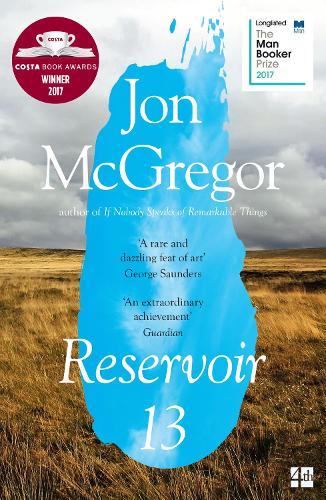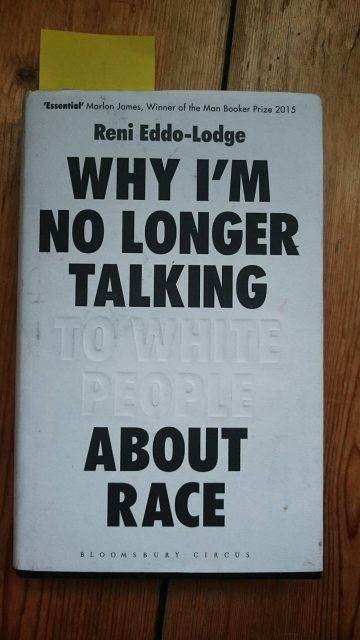The longlist for the Man Booker Prize 2018 was announced today and The English Patient, by Michael Ondaatje was recently announced as the winner of the Golden Booker, readers' favourite Booker prize winner. This got me thinking about my own favourites amongst the previous winners of this prestigious prize and I came up with my own list of the best of the Booker Prize winners (I have read The English Patient, but it doesn't make my list!).
Paddy Clarke Ha Ha Ha by Roddy Doyle
The 1993 winner is told through the eyes of Paddy Clarke, a 10 year old boy in 1960s Dublin. It is a fantastic recreation of childhood and the voice of Paddy Clarke is beautifully created. Consecutive paragraphs skip from one topic to the next totally unrelated topic as Doyle captures perfectly the speech patterns of children, together with the boundless curiosity and never ending questions.His innocence / naivety provide poignancy as we realise we (and he) are witnessing the unravelling of his parents' marriage. Desperately sad and laugh out loud funny, it also provides social commentary on working class Dublin at this time - a must-read book.
The God of Small Things by Arundhati Roy
Arundhati Roy's debut novel won the Booker prize in 1997 to huge critical acclaim. It is a much loved and often talked about book. The prose is hauntingly beautiful and a real celebration of the English language. the book follows twins Rahel and Estha, growing up in Kerala. Their beautiful and much-loved cousin Sophie Mol comes to stay and dies tragically. We find out that she dies on page 3 but don't find out how or why until the last chapter. However, the ramifications of her death echo throughout the book and affect every character.
Life of Pi by Yann Martel
This extraordinary book won the Booker Prize in 2002. It tells the story of a boy and a tiger marooned together on a life boat and will make you question everything you thought you knew. Probably the most thought-provoking book I have ever read.
The Inheritance of Loss by Kiran Desai
This novel won the Booker prize in 2006. The story is told through 3 main characters: 16 year old Sai, who lives with her grandfather the judge, in a dilapidated hill station in the foothills of the Himalayas in northern India, and Biju, the son of the judge's cook, struggling to find a better life in New York. This is a searing examination of class and identity, and is a beautifully written and compelling story.
The Luminaries by Eleanor Catton
The 2013 winner is a huge novel in both length and scope. It is set in New Zealand during the gold rush of the 1860s. A very clever plot structure opens with a man stumbling upon a secret meeting of twelve men all gathered together to tell their stories. It turns out that all these stories are linked (often through many intricate layers) and a compelling mystery is gradually revealed. It is a page turner - you really want to get to the bottom of this mystery (even the nature of the mystery is not immediately apparent - is it a murder, disappearance, fraud?) and the way it is revealed is original and intelligent. The structure of the novel is important, but does not overpower it. The writing is eloquent and highly evocative of time and place. A real triumph!
True History of The Kelly Gang, by Peter Carey
This won the Booker prize in 2001 and it's easy to see why. It is a novel unlike anything else, where Carey completely transports the reader to the 19th Century and the life of the notorious bush ranger, Ned Kelly. Carey has written in the voice of Kelly, uneducated and barely literate and this is what helps to totally immerse the reader in the time and place, but also means that it can be hard to get into. A page turning adventure and a mind-blowing accomplishment from this talented author.
Wolf Hall and Bring up the Bodies by by Hilary Mantel


Hilary Mantel is only the third author (and the first British author, and first woman) to win the Booker prize twice: first for Wolf Hall in 2009 and then for its sequel Bring up The Bodies in 2012. Both books centre on Thomas Cromwell: the first covering his rise, from the humble beginnings of a blacksmith's son, to becoming one of the most powerful men in England, as adviser to the King; and the second centring on the downfall of Anne Boleyn and Cromwell's part in it. The historical detail and the beautiful descriptive writing mean that Tudor London really does come alive. The novel is written almost as Cromwell's stream of consciousness and that, coupled with the authentic language and turns of phrase from the sixteenth century, can make it difficult to get into, but persevere because it is worth it. This kind of total immersion in another time and place is what I crave when reading and Mantel achieves it. I really felt like I was living in Tudor London. A fascinating insight into a turbulent period in history and a look at power and the desires, dilemmas and corruptions associated with it. I found Bring up The Bodies to be faster paced and the more absorbing read, but Wolf Hall is still a very rewarding read, and you can't really separate the two - they need to be read together.
What is your favourite Booker prize winning novel? What would you add to this list?





